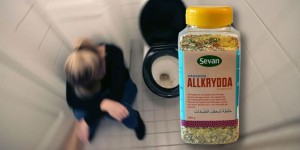Food Safety Talk, a bi-weekly podcast for food safety nerds, by food safety nerds. The podcast is hosted by Ben Chapman and barfblog contributor Don Schaffner, Extension Specialist in Food Science and Professor at Rutgers University. Every two weeks or so, Ben and Don get together virtually and talk for about an hour. They talk about what’s on their minds or in the news regarding food safety, and popular culture. They strive to be relevant, funny and informative — sometimes they succeed. You can download the audio recordings right from the website, or subscribe using iTunes.
The show opens with the guys reminiscing about their visit to Southern California and the Hopscotch Tavern where they witnessed a Fark worthy car chase on TV.
Ben shared his love of Top 40 music , and his worries about exposing his kids to inappropriate music like Beyoncé or Sublime. 
From there the discussion moves to the value of real world experiences like those detailed in Kitchen Confidential, Heat, or by Gord Surgeoner during his retirement dinner.
The food safety talk begins in earnest with a discussion of Hepatitis A illnesses linked to frozen berries in Australia, and Don shared his back of the envelope quantitative microbial risk assessment for frozen berries based on this article. This was followed by a discussion on why viruses might be such a problem in frozen berries, and frozen food safety risk management in general.
Next up is an exploration of Listeria in public lavatories based on this peer reviewed publication. The conversation then devolves into Shoe Safety Talk, and the risks posed by brogues, not broughs, but the brogue shoe.
The After Dark includes a mention of Roderick’s Rendezvous, The Dan Benjamin Hour, and Don finally remembers the name of Battle Creek.










